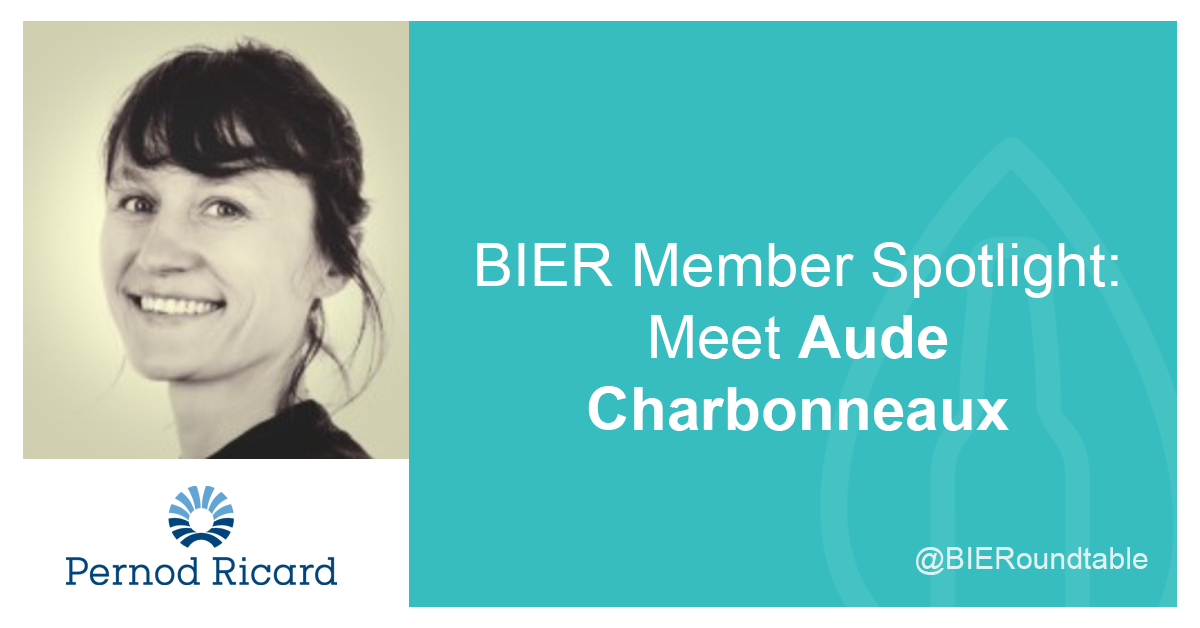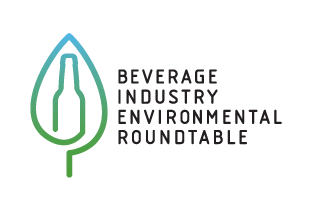BIER Member Spotlight: Aude Charbonneaux
Meet Aude Charbonneaux

Name: Aude Charbonneaux | Head of Climate & Environment
Company: Pernod Ricard
Connect with Aude on LinkedIn
Welcome to our series aimed at spotlighting the individual leaders within BIER member companies and stakeholder organizations. Learn how these practitioners and their companies are addressing pressing challenges around water, energy, agriculture, climate change, and what inspires each of them to advance environmental sustainability in the beverage sector and collectively, overall.
Briefly describe your role and responsibilities and how long you have worked with your company.
I have started with Pernod Ricard for a little over one year. My role centers around climate and environment, and I am responsible for rolling out part of our 2030 Sustainability & Responsibility roadmap, ‘Good Times from a Good Place’ to make it operational and especially to track performance around the climate and environment. If you want to track performance, it means there has to be an agreement on targets and the methodology. How are you going to measure things? And which set of tools and systems will be allowed for monitoring performance? So, from the definition of the metrics to setting up the methodology, the tools, and tracking of the performance, that's more or less what my role encompasses.
Also, each year, I am expected to challenge our strategy, year over year, to evaluate opportunities. Basically, to see whether we should reinforce some aspects.
Interestingly, my team is part of the Operations department, which allows us to be closer to all those operating in the supply chain, which includes working with our affiliates, buyers, etc. Also, we work closely with the Sustainability & Responsibility department (CSR department) around our ambitions and strategy, whether we need to review our targets, revise our policy, reassess some risks, and things like that.
Our Sustainability & Responsibility roadmap includes 4 pillars: Nurturing Terroir, Valuing People, Circular Making and Responsible Hosting. The pillars address all aspects of our business, from grain to glass. Each of our pillars sets out ambitious goals and targets which we measure and report against to drive change throughout the business, and support performance through innovation, brand differentiation and talent attraction. It is the second pillar, Circular Making, where we have our strategy around climate, water, circular packaging, and that is where my responsibility lies.
How has the company’s sustainability program evolved over the years, and what are your specific priorities for 2023?
Looking at one of our four pillars, Circular Making, we are committed to reducing our scope 1&2 absolute GHG emissions by 54%, our scope 3 GHG emissions intensity by 2030 (vs 2018 baseline) by 50%, and following a Net Zero by 2050 trajectory. To do this, we are reducing our carbon emissions in our own operations by turning to new technologies and alternative energy, by procuring renewable electricity for our sites and offices. We are also working with our supply chain to help reduce our overall carbon footprint linked to the procurement of packaging and agricultural materials, as well as logistics. The procurement team is working very closely with our suppliers to understand their emissions, to understand their roadmap, and the best ways to capture more granular and specific data to better manage the journey of decarbonization.
Building upon that, the Science Based Targets Initiative (SBTi) released new guidelines, and while they were fresh, we tried to use the guidance right at the beginning. So, we have analyzed our FLAG (forest, land, and agriculture-related) emissions and conducted a feasibility analysis to see how we can achieve this new ambition. In the process, we made progress in understanding how we may need to transform our Group in order to reach those new targets.
In parallel to this, we've also been working on reassessing our climate risks asking the question, “How would the Group be affected by future scenarios around climate in different rises of average temperature?
I’ve been involved with two studies this year that were very influential in terms of learning and awareness for the Group. They marked a clear new impulse for accelerating our transition to a lower carbon business model.
Overall, we are building momentum, and those are some of the key things we did this year that we can be proud of.
Learn more about Aude Charbonneaux in this BIER Member Spotlight.

